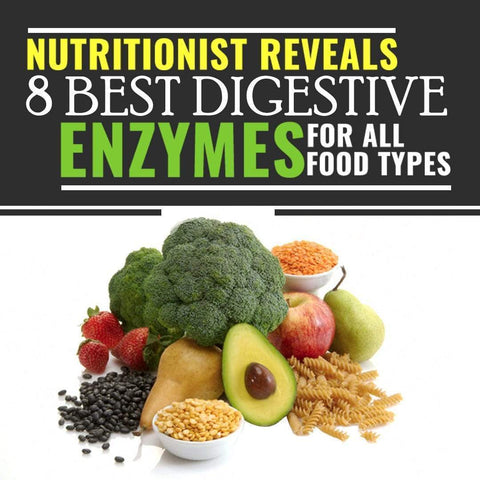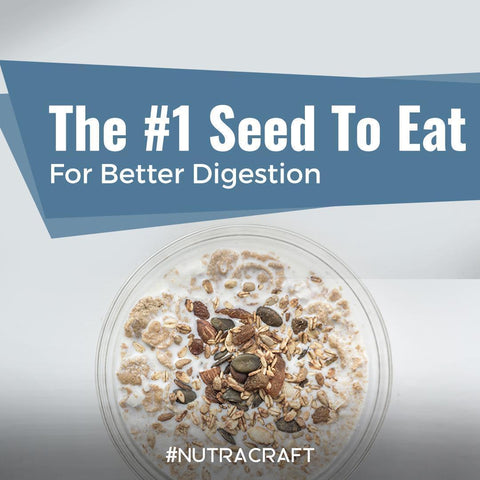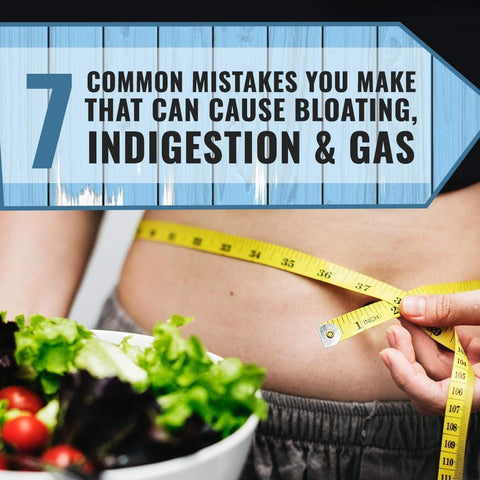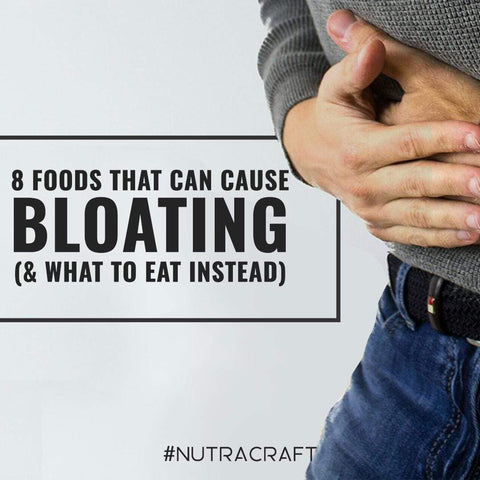
When your gut is in distress, your life is not good. Bloating, indigestion, and gas are a drag!
Digestive distress is very common in the modern world. In America, for instance, it’s estimated that nearly 100 million people out of just over 320 million have some sort of digestive disorder. That’s a huge portion of the country.
Irritable Bowel Syndrome (IBS) is one example of a disorder that causes the uncomfortable buildup of gas in the gut. But even if you don’t have a diagnosable digestive disorder, gas, bloating, and indigestion can be a pain and made you hate eating.
So listen up - just by changing a few of your eating habits, you can minimize gas and indigestion.<
Let’s take a look at a few simple steps in making your gut feel better.
Better Habits for Better Digestion
1. Don’t Be Stressed When Eating

Easier said than done, right? But we should remind ourselves that our opinions make us stressed - and those opinions are in our control. If you’re fretting about something while eating, your digestion won’t work optimally.
So relax before you eat and steer clear of antagonistic conversations during mealtime. Your surroundings when you eat should be laid back and stress-free.
Stress causes chaos in your gut. Researchers list a slew of bad effects like damage to your intestinal tissue, alterations in whether your gut moves food through it, and the killing off of good bacteria 1†. No wonder why stress can contribute to gas buildup and digestion discomfort 2†.
Exclusive Bonus! Download the FREE report ‘How to Eliminate Bloating & Digestive Upset in 3 Steps’ by clicking here.
2. Stay Away From Allergy Foods or Food Intolerances
Sometimes our bodies simply don’t do well with certain foods. These foods vary person to person so you have to pay attention and notice when a certain foods causes gas or digestive problems.
Many people have trouble with wheat and dairy. But other foods could be causing you discomfort as well. Some people can’t handle histamine-rich foods such as mushrooms, pickles, etc. and may develop symptoms after eating these foods.
3. Eat Slowly

Don’t gulp your food down quickly. If you eat too fast, you could be swallowing air that could build gas in your gut 3†. You also want to give your digestive system plenty of time to digest your food.
Physicians recommend that patients with Irritable Bowel Syndrome (IBS), which tends to cause gas buildup, eat slowly so as to minimize flatulence <4.
4. Lay Off The Beans For A Day Or Two
We’ve been taught that “the more you eat, the more you toot” - and it’s true for some people. But not everybody - research shows that less than 50% of people experience more flatulence when eating black or pinto beans 5†. But you might be one of those people whose gas gets exacerbated by beans.
So if you eat beans, cut them out of your diet for a day or two to see if you get less gas.
5. Ditch The Fried Food
You already know that fried food is not good for you. It also causes acid reflux and indigestion for some people 6†<.>
6. Also Ditch the Spicy Food
Eat more mild food if you have acid reflux because spicy food can trigger it 6†.
7. Don’t Eat When You’re Not Hungry

When you’re body isn’t ready for food, don’t force it down your throat. You’re supposed to eat when your body tells you to. Most of the time, when you’re not hungry, it’s for a reason and your digestive system doesn’t want to be put to work.
And if you do put it to work, it’s going to be less efficient at doing its job. Gas, bloating, and discomfort are more likely to come on when your digestion isn’t performing optimally.
Nature Gives Us Digestion-Supporting Tools
Just as smart habits help your gut, many natural compounds in supplements and soothing foods can ease your gut pain.
Do you suffer from excessive gas and bloating?
Are you sick of always feeling uncomfortable after eating?
If this sounds like you, there’s a high chance that you are lacking the specific enzymes needed to metabolize food correctly.
Luckily, the cause of these digestive issues can be easily remedied using safe, natural methods! And when you focus on reintroducing these enzymes - your body will learn how to tolerate food properly - completely eliminating excess bloating and gas!
Our top nutritionist Evan Burns shares his revolutionary strategies designed to banish excess bloating and gas. After incorporating them into your lifestyle, you can finally feel comfortable with your body again.









